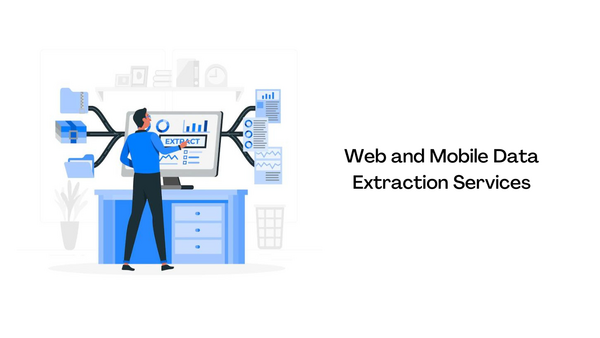Notifications
ALL BUSINESS
COMIDA
DIRECTORIES
ENTERTAINMENT
FINER THINGS
HEALTH
MARKETPLACE
MEMBER's ONLY
MONEY MATTER$
MOTIVATIONAL
NEWS & WEATHER
TECHNOLOGIA
TV NETWORKS
VIDEOS
VOTE USA 2026/2028
INVESTOR RELATIONS
DEV FOR 2025 / 2026
ALL BUSINESS
COMIDA
DIRECTORIES
ENTERTAINMENT
FINER THINGS
HEALTH
MARKETPLACE
MEMBER's ONLY
MONEY MATTER$
MOTIVATIONAL
NEWS & WEATHER
TECHNOLOGIA
TV NETWORKS
VIDEOS
VOTE USA 2026/2028
INVESTOR RELATIONS
DEV FOR 2025 / 2026
 Duane Jackson -
March 29, 2024 -
Other -
web scraping tools
Web scraping services
-
293 views -
0 Comments -
0 Likes -
0 Reviews
Duane Jackson -
March 29, 2024 -
Other -
web scraping tools
Web scraping services
-
293 views -
0 Comments -
0 Likes -
0 Reviews

One of the primary benefits of data scraping services is their ability to unlock valuable insights hidden within the vast expanse of online data. By aggregating information from multiple sources, businesses can gain a comprehensive understanding of market trends, consumer behavior, and competitor strategies. For example, retailers can monitor pricing dynamics across various e-commerce platforms, while financial institutions can analyze news articles and social media posts to gauge market sentiment.
Data scraping, also known as web scraping, involves the automated extraction of data from websites. With the exponential growth of online content, businesses are increasingly turning to scraping services to gather relevant information for market research, competitor analysis, lead generation, and more. Web scraping UK, industries ranging from e-commerce and finance to healthcare and media are leveraging data scraping to inform strategic decision-making and drive business growth.
While data scraping offers immense potential, it also raises legal and ethical considerations. Many websites have terms of service that prohibit or restrict automated data collection, raising questions about the legality of scraping certain sources. Moreover, scraping large volumes of data from a single website can strain its servers and potentially lead to performance issues or legal action. To mitigate these risks, responsible data scraping services in the UK adhere to ethical guidelines, respect website terms of service, and employ techniques such as rate limiting to minimize the impact on target websites.
Data privacy and security are paramount concerns in the era of increased regulatory scrutiny and growing consumer awareness. When scraping data from websites, businesses must ensure compliance with relevant regulations, such as the General Data Protection Regulation (GDPR) in the UK. This includes obtaining consent from individuals when collecting personal data and implementing robust security measures to safeguard sensitive information. Trusted data scraping services prioritize data privacy and security, employing encryption, access controls, and other measures to protect against unauthorized access and data breaches.
Advances in technology, such as machine learning and natural language processing, are revolutionizing the field of data scraping. These technologies enable scraping services to extract and analyze unstructured data with greater accuracy and efficiency. By automating complex tasks such as sentiment analysis and content categorization, businesses can derive deeper insights from web data and make more informed decisions. Additionally, emerging technologies like blockchain offer innovative solutions for ensuring data integrity and traceability in the scraping process.
In conclusion, data scraping services have become indispensable tools for businesses in the UK seeking to harness the power of web data. While the adoption of scraping presents challenges related to legality, ethics, and data privacy, responsible practices and technological innovations are helping organizations overcome these hurdles. As the demand for data-driven insights continues to grow, the role of data scraping services in driving innovation and competitiveness in the UK market is poised to expand further. By embracing best practices, respecting legal and ethical considerations, and leveraging cutting-edge technologies, businesses can unlock the full potential of data scraping services to fuel growth and success in the digital age.
